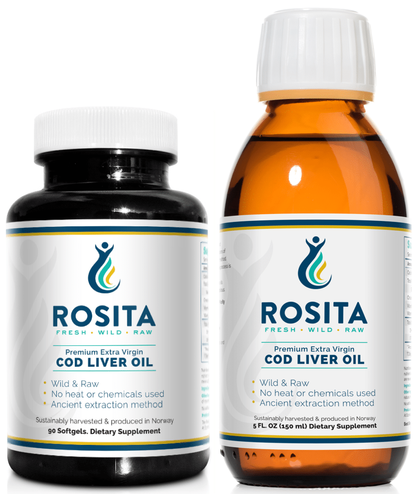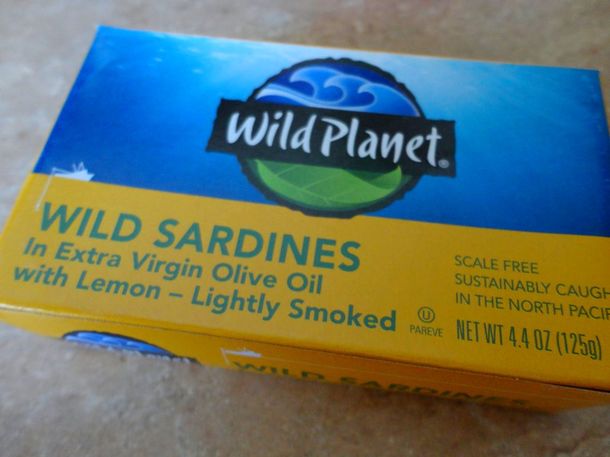|
Vitamin D is such a popular nutrient to focus on in the health world right now. Only in the last decade or two has it started getting the attention it deserves, though people have likely been becoming more deficient over time since the industrial revolution. Also known as the sunshine vitamin, because the majority of our vitamin D comes from the sun, people living in modern societies are severely lacking in this due to so much time spent indoors. We are inside creatures now more than ever, whether in school, at work, or for leisure and recreation, and we are paying the price with our health. We don't have to go outside to grow, hunt or forage our foods, build shelters (unless that is your specific occupation), or commune with others, so our time in the sun is minimal compared to our ancestors. Modern foods are also no longer supplying the vitamin D, as traditional diets once did. If we don't start getting outside and going back to ancestral diets, the epidemic of vitamin D deficiency in the Westernized world will only get worse, which will have many health implications. Because vitamin D acts as a hormone in the body, it has roles in signaling and controlling many functions, and there are vitamin D receptors on cells all over the body, including some gut bacteria. Maintaining a healthy vitamin D status is of vital importance, and its effects are far-reaching. The Many Roles of Vitamin D Mood and Mental Health In my work as a dietitian, one of the places I see the impact of vitamin D deficiency most is in mood and mental health. Though not the only cause, vitamin D deficiency is strongly linked to depression and it is needed to maintain normal mental functioning. One place this is commonly seen is in seasonal affective disorder. During the winter, when sunlight is nowhere to be found, rates of depression go up, largely due to the lack of vitamin D received from the sun. Overall mood is improved with adequate vitamin D status as well, and changes in mood or mental health can often be a sign of a vitamin D deficiency. Gut Health Adequate vitamin D status is needed for a healthy gut, as it maintains a healthy microbial population. Vitamin D deficiency can be involved in developing inflammatory bowel disease and other digestive issues, and scientists have found a connection between certain bacteria in the microbiome and vitamin D receptors. Some digestive issues may be caused or worsened by vitamin D deficiency, so if you are looking to heal the gut, getting your vitamin D status where it should be is a place to start. In the same vein, if your gut health is compromised, you may not be absorbing vitamin D from foods as you should be, so counting on the sun for your D until the gut is healed would be necessary. Thyroid Health and Hormone Balance Vitamin D itself acts like a hormone in the body, so it does play a role in maintaining hormone balance. This includes reproductive hormones in men and women, as well as the thyroid hormones. It is needed to convert inactive T4 to the active T3 form in the thyroid, so a vitamin D deficiency could severely inhibit normal thyroid functioning. If you are one of the many people who suffer from hypothyroidism, keeping an eye on your vitamin D will be important for you. The HPA (hypothalamic-pituitary-adrenal) axis, which maintains hormone balance among these three glands, regulates stress response in the body, and vitamin D is needed in keeping these in check. If you are under extra stress, either physical or mental, or experience sleep or energy issues, vitamin D will be a part of the healing process to get your energy back. Bones and Teeth Probably the most well known function of vitamin D is maintaining healthy bones and teeth. Vitamin D is needed for absorption of calcium, which can then be deposited into bone and teeth tissue. It also keeps the levels of calcium and phosphate balanced in the blood, preventing excess or deficient levels that can cause acute or chronic health problems. Lack of vitamin D can cause rickets in children or osteomalacia (soft bones) in adults, osteoporosis, and tetany. Excess amounts can cause soft tissue calcification and imbalances of calcium and phosphate in the body. In pregnancy, getting adequate vitamin D is crucial in forming healthy fetal bones. This is especially important in making a skull that can adequately grow to fit all of a child's teeth, which can prevent crowing and the need for braces in the future. Vitamin D is needed to prevent cavities, and those who are prone to dental decay and gum disease likely need to have their vitamin D status checked. Supplementing with vitamin D may be needed in healing cavities, or at least paying extra attention to get plenty of sun exposure and foods that are sources of vitamin D. Heart Health, Inflammation and Immune Function Vitamin D is needed to maintain healthy heart function, as it helps with calcium absorption and depositing it into bone instead of soft tissue. This can prevent calcification of the arteries, which is a major cause of heart disease. It also plays a role in preventing inflammation and promoting a healthy immune system, so those with autoimmune disorders or even who are prone to infections should watch their vitamin D intakes closely. Those with allergies or asthma may need to look at this as well, as these are both related to impaired immune functioning. How much Vitamin D is needed? The RDA for vitamin D is 600 IU for adult men and women, and 400 for children, which can be obtained through sunlight, food and supplements. The goal is to maintain serum vitamin D levels 25(OH) D between 30 and 40 ng/mL, as levels over 50-60 and below 30 ng/mL have been associated with negative health effects. When assessing vitamin D status, it is also important to look at intakes of calcium, phosphorus, vitamin A, and vitamin K2, as well as inflammation, gut health, and genetic factors that can interfere with vitamin D status. It can also be helpful to measure parathyroid hormone (PTH) status when getting your vitamin D checked, as it can be affected by vitamin D status as well. Getting adequate vitamin A and vitamin K2, other fat-soluble vitamins, are needed to absorb vitamin D properly and the three vitamins work together in the body to maintain balance of each other. Sources of Vitamin D Sunshine The best source for getting vitamin D is, of course, sunshine. That is nature's plan to ensure we get adequate vitamin D for optimal health. Daily sun exposure of just 15 minutes can improve and maintain your vitamin D status, so if you are worried about too much sun causing skin damage or burning, then you can limit your time in direct sun and still get some benefit. Remember with counting on sunlight as a vitamin D source that sunblock, even the natural kind, blocks vitamin D absorption when it blocks UV rays. Anything that blocks UV-B exposure, such as cloud cover, smog, or even tall buildings, can limit the amount of vitamin D available from the sun. You can also not absorb vitamin D through glass, so sitting in the sun indoors will not do the trick, as glass blocks UV rays. The UV is needed to convert sunlight to vitamin D in the liver, so blocking this with sunblock or even dark clothing, will not allow you to count on it for vitamin D. For some, getting adequate vitamin D is not always possible. During the winter months at more Northern latitudes, such as Wisconsin, there is just not enough sunlight to give us what we need, and we are also almost fully covered up due to it being so cold. If you live at a more Southern latitude, then this isn't such an issue in the winter. The closer you are to the equator, the more sun exposure and vitamin D you will be getting. Special consideration must also be given to people of color, who don't absorb as much vitamin D due do a darker skin tone, so these folks need to take extra precautions if they live more North during the winter months. This is also true for those whose religion or personal preference have them covering most or all of their skin, no matter what time of year. Women of Muslim or Amish faiths are at high risk for vitamin D deficiency, as their skin is almost never exposed to sunlight. Though I don't usually recommend supplementation, unless with real food-based "superfood" type supplements, vitamin D may be needed for some in these situations. During the winter months, you can supplement with 1/2 tsp extra virgin cod liver oil daily to add extra vitamin D. I do not recommend intake above this, as it is very concentrated. The vitamin A helps with absorption and acts as an antioxidant, which helps boost my immune system during the winter, along with the omega 3 and D it contains. Supplementation may also be wise for people of color during the winter in Northern climates or those who are fully covered all year round. Other than acute deficiencies and these particular populations, I believe most people can get adequate vitamin D from sunlight and foods. Food Sources
Vitamin D is fat-soluble, so it will always be found in foods that are higher in fat. The best sources are animal foods, as they contain mostly vitamin D3, the more bioavailable form of vitamin D. This is compared to vitamin D2, found in small amounts in mushrooms and some plants, but is much less absorbed in the body. Fatty fish with skin and bones, such as salmon and sardines, are great sources of vitamin D. Beef liver is also extremely high, followed by the livers of other animals like chickens and geese. Having fish 2-3 times per week and 2-3 oz of liver once a week, along with sun exposure, should be enough to maintain your vitamin D status. Again, supplementation may be needed in the winter if sunlight is limited and intake of these foods is low. Pastured egg yolks provide vitamin D as well, as does pastured pork, particularly the skin and fat (think chicharrones, bacon, and lard). Regular intake of these foods will help with your vitamin D status as well. Dairy that contains high levels of vitamin D is fortified to be this way, so I recommend not getting your vitamin D this way, as the fortification is done with synthetic vitamin D. Breakfast cereals and orange juice are often fortified with D as well, so look for this on labels. I generally recommend against fortified foods in general, as nature has provided us with foods (and the sun!) already that are sufficient sources of our nutrient needs. Now that spring is here, we can start to go outside and get the vitamin D we desperately need. I can definitely start to feel that it is time for some sun bathing, so I cannot wait! Make time in the sun a priority, and you will feel healthier and happier right away!
0 Comments
Leave a Reply. |
Brine & Broth
I am a gut health-focused nutritionist and online health coach based in Southwest Wisconsin. My recipes and philosophies center around traditional, nutrient-dense foods that support robust gut health. Archives
May 2022
Categories |





 RSS Feed
RSS Feed
